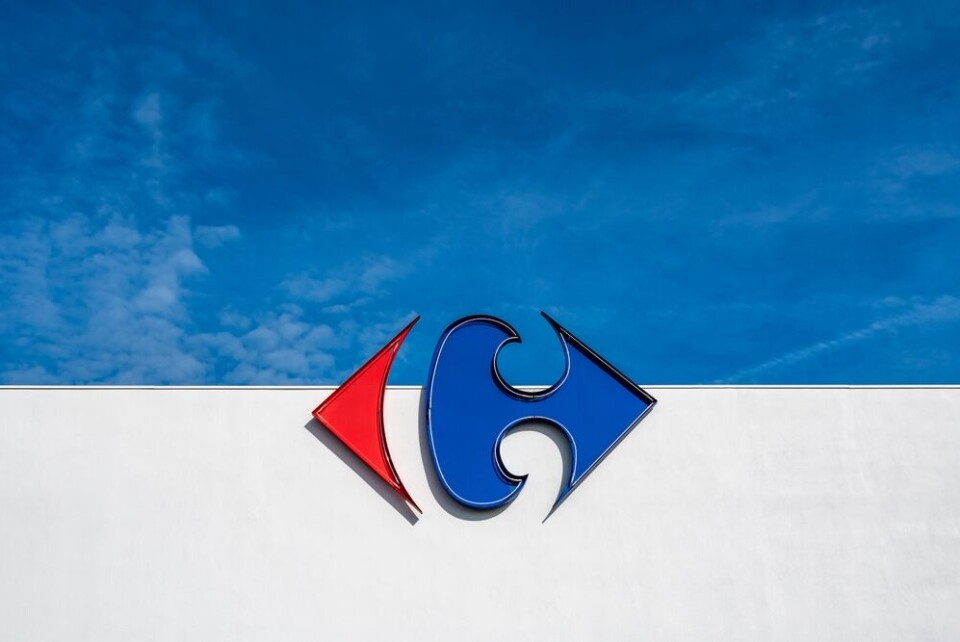-
Warnings issued over connecting to public WiFi networks in France
Lack of encryption and risk of connecting to ‘fake networks’ leave users at risk of hacking attempts
-
France impacted by EU approval for €3 tax on small parcels from outside the union
Tax could coincide with separate French fees for parcels says Finance Ministry
-
Winegrowers outraged by €0.01 bottle of wine in French supermarket
Lidl claims labelling error but local farmers’ union says it threatens local production
French supermarket chain puts stickers on food to show ‘shrinkflation’
The measure by Carrefour has been criticised as it uses the same practice on its own brand products

The French supermarket chain Carrefour has said it is set to put stickers on products subject to ‘shrinkflation’ - the term refers to when product size has decreased but the price has been maintained or even increased.
The chain will place orange stickers (sized 13cm by 13cm) on affected items, and show where the price requested by the supplier has increased, said David Reviriego, the supermarket’s press relations manager.
The sticker also states that Carrefour will aim to renegotiate the price of the product concerned.
Some of the products subject to shrinkflation include 16 capsules of Nescafé’s Dolce Gusto Grande Intenso coffee, which have reduced in weight from 9g to 8.3g while seeing their price increase by 8%, according to French media BFMTV.
Mr Reviriego said on X (formerly Twitter), that Carrefour’s aim “is clear: inform consumers and put pressure on companies to drop their prices”.
Communication campaign
However consumer association 60 millions de consommateurs noted that the supermarket chain itself practises shrinkflation on its own-brand products.
Lionel Maugain, from the association, told France Inter that the supermarket’s stickers are a ‘first’ in the industry, but also a ‘communication campaign’.
He said Carrefour started applying shrinkflation to its own products in May, citing as an example a pack of potatoes, which has dropped in weight from 1.5kg to 1kg, while keeping its price of €0.99.
He also cited a pack of lettuce hearts, which went from containing three to two hearts, while again keeping its price of €0.99.
He did however say shrinkflation is “marginal” at the chain, with only 150 products affected, “which is not enormous” given the “10,000, 20,000, 30,000” products that are found in a supermarket.
Read also: Watch out for false supermarket ‘date-end’ food promotions in France
‘Downsizing’
In response, Carrefour said it preferred to use the term ‘downsizing’.
“When faced with price increases from our suppliers, we preferred to change the weight rather than the price,” it said in a statement to Ouest France.
“We realised that this was poorly understood by consumers, and that we could have better informed them of this decision.”
The supermarket’s pack of lettuce hearts now once again contains three instead of two hearts - but its price has increased to €1.29.
Carrefour is not the only supermarket chain to practise shrinkflation, however. BFMTV noted, for example, that a Leclerc own brand jar of jam has seen its weight fall from 330g to 320g, but its price increased by 69.4%.
Bill to counter shrinkflation to come
To counter shrinkflation, French finance minister Bruno Le Maire said last Thursday (September 7) that a bill will be presented at the beginning of October that will force companies “to show in a very obvious way” when the size of a product has been reduced to counter shrinkflation.
He said the practice has always existed but [its use] is becoming more widespread.
The non-governmental organisation Foodwatch, which launched a petition a year ago against shrinkflation, said it welcomed the measure as a “victory”.
“In these difficult times, we are delighted that the government has decided to act and force manufacturers to be honest,” said spokesperson Audrey Morice.
Foodwatch said it wants the information to be clear and visible, and say whether the product’s quantity has changed. The information should be shown on both the packaging and online, for at least three months, so that consumers have time to note the change, it said.
Read also
Which is the cheapest supermarket chain in France?
French supermarkets prepare to launch traditional ‘Foires aux Vins’
























